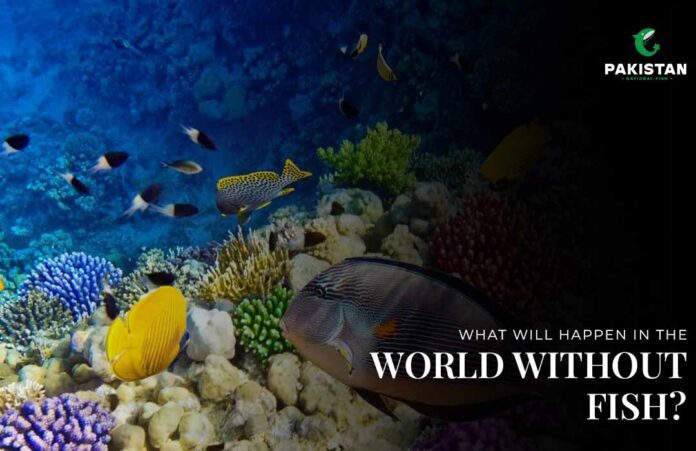If there were no fish in the world, aquatic ecosystems would experience significant disturbances across various dimensions:
Fish are essential components of aquatic food chains, acting as predators, prey, and hunters. The complete extinction of fish would disrupt marine ecosystems, resulting in cascades of trophic relationships in which changes at a single level of the food chain have a substantial impact on subsequent levels.
Lacking fish to consume phytoplankton and algae, these microbes could spread uncontrollably, resulting in toxic algal blooms. This could lead to low oxygen levels in the body of water (hypoxia) and dead zones in which aquatic life fails to survive.
Many marine animals, birds, and bigger creatures feed on fish. Their disappearance would require these predators to adjust, either by seeking other food sources or facing a decrease in population.
Without fish, these many species may quickly proliferate, displacing local plants and animals. In the absence of fish that eat aquatic plants and algae, bodies of freshwater may experience overgrowth, resulting in pollution and changing water composition.
The absence of fish would lead to significant economic disturbances in various ways:
The global fishing business is worth millions of dollars and employs millions of people. The demise of this business would result in considerable economic decline, particularly in countries that rely significantly on fishing as their principal economic activity.
The absence of fish in diets could lead to increased healthcare costs due to higher rates of cardiovascular diseases, cognitive decline, and other health issues related to the lack of these nutrients. This could put additional strain on public health systems and increase insurance costs.
The lack of fish will raise demand for other protein sources such as livestock and poultry, possibly leading to excessive utilization and higher food costs.
The absence of fish in the world would cause substantial environmental disturbances, profoundly impacting various ecological processes and interactions:
Fish help maintain water quality by decreasing algae and phytoplankton levels. Without fish, water bodies may face eutrophication, resulting in poor water quality and decreased oxygen levels.
Without fish, plant remains and trash would be inefficiently recycled, resulting in higher organic matter and associated pollution issues.
Fish help the ocean store carbon through biological mechanisms. Without fish, the ocean’s ability to control carbon and reduce climate change may be compromised.
Fish help to sustain healthy seaweed and seagrass ecosystems. Unlike them, these plants, which play an important part in carbon sequestration, may disappear.
The absence of fish would have significant impacts on coral reefs. Here are some of the key impacts:
Several fish species feed on algae, which can overwhelm coral reefs. Without herbivorous fish, algae blooms might take over coral reefs, diminishing variety and damaging reef structures.
Fish are a vital component of coral reef biodiversity. They occupy various ecological niches, from small reef fish to larger predators. The absence of fish would lead to a loss of this biodiversity, affecting the resilience and functioning of coral reef ecosystems.
A shortage of fish would have disastrous implications for ecosystems, economics, food security, and the lives of humans. Fish play an important role in keeping aquatic ecosystems balanced, providing necessary nutrients, and contributing to livelihoods around the world. To avoid a situation like this, we must focus on conservation initiatives, sustainable practices, and alternate food sources to maintain the health of our seas and the ongoing availability of fish for generations to come.


